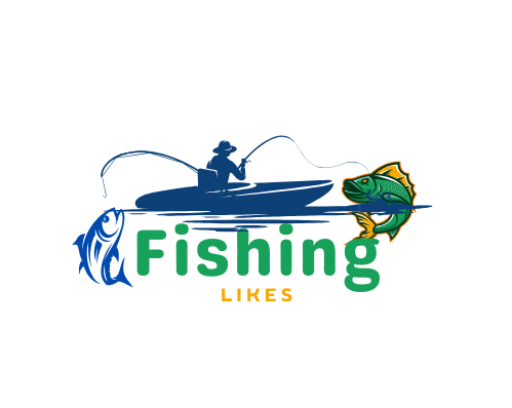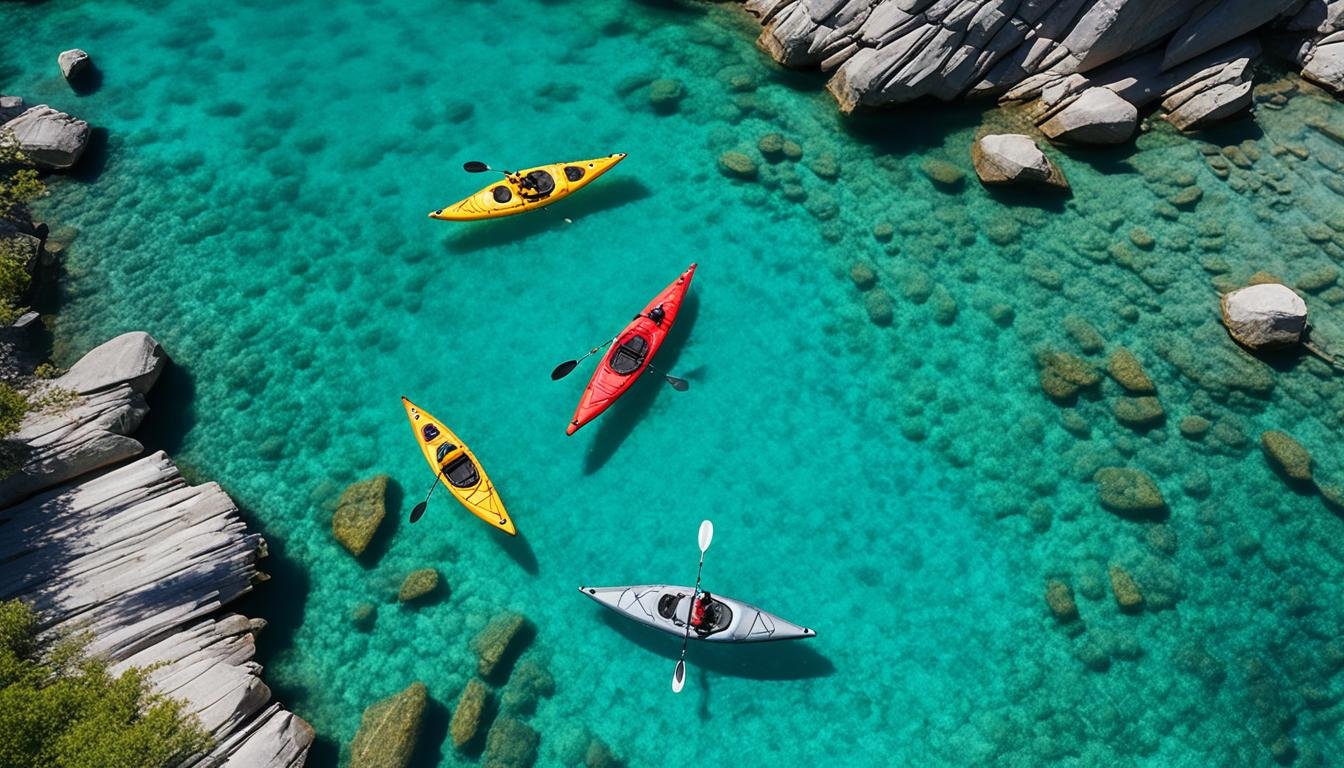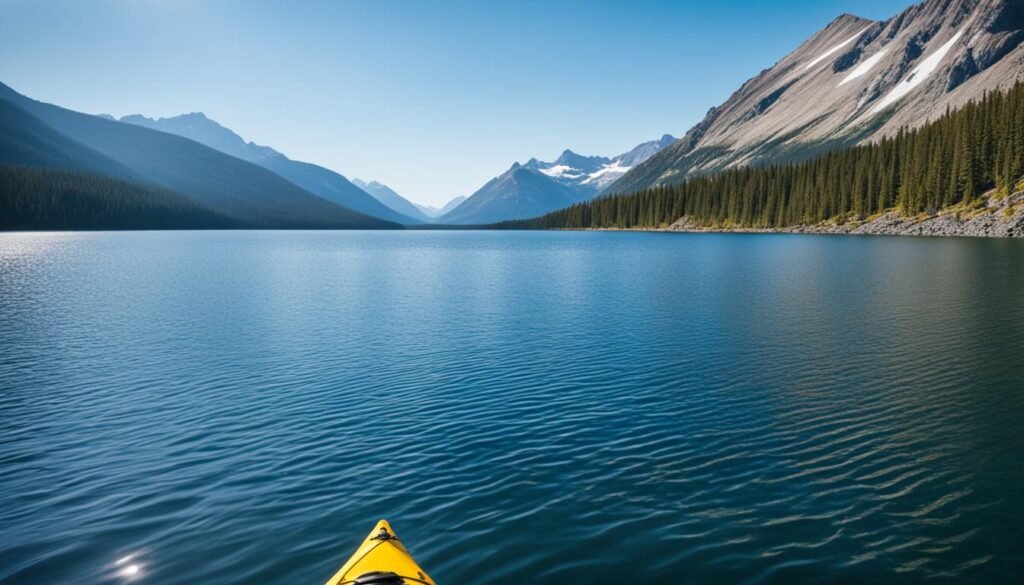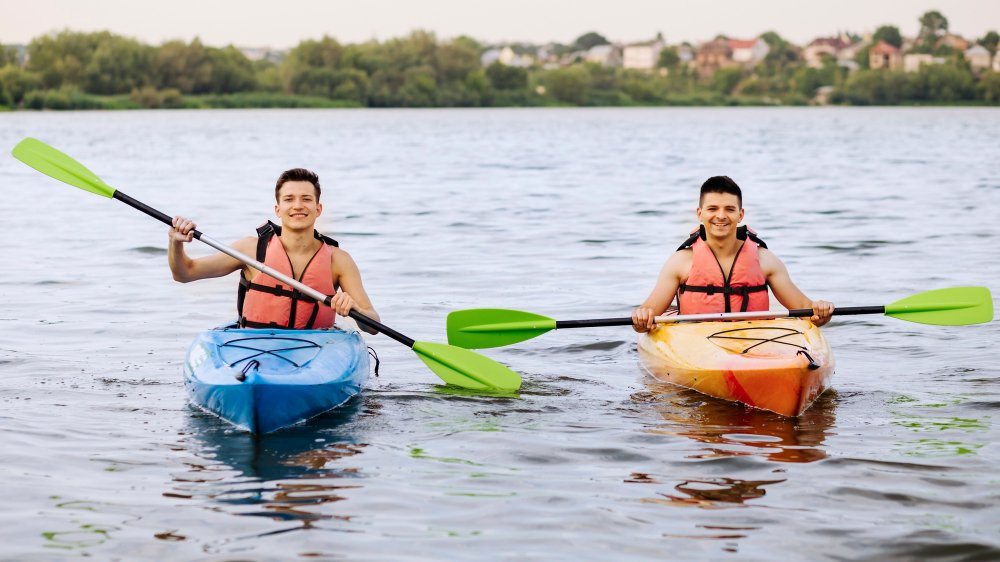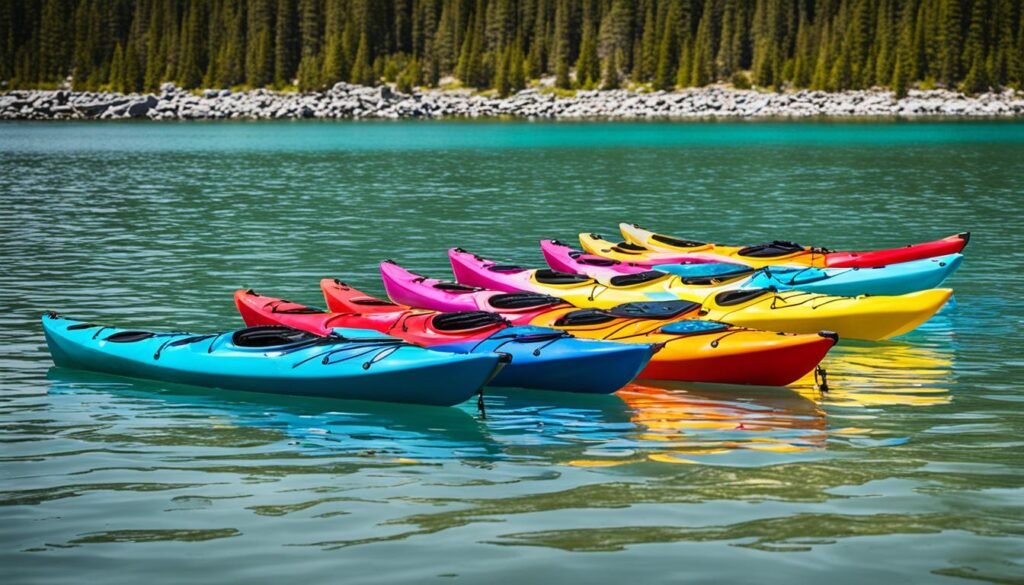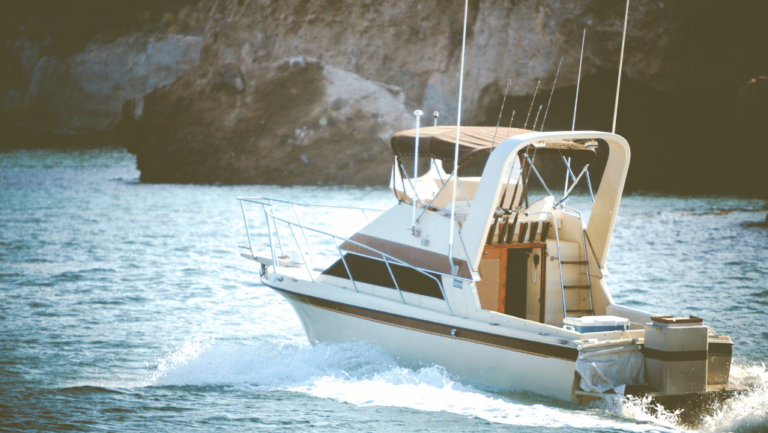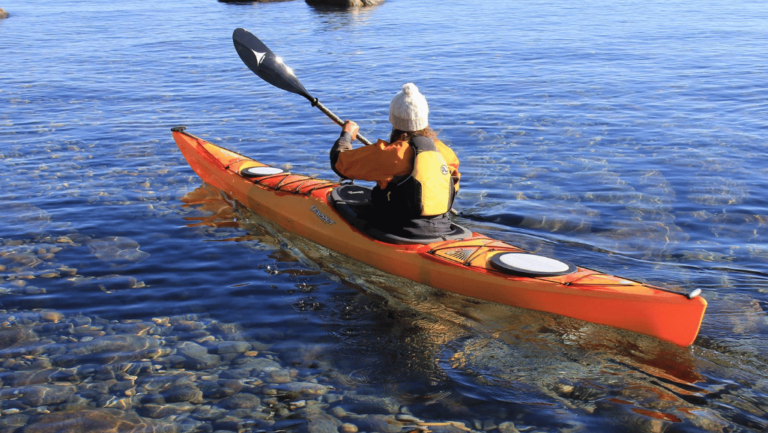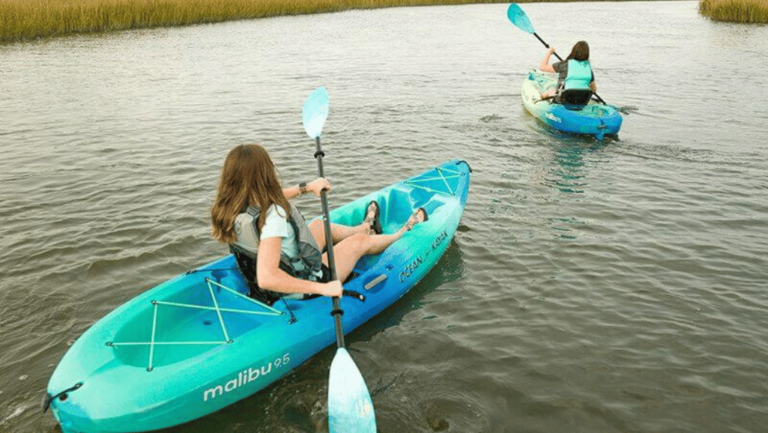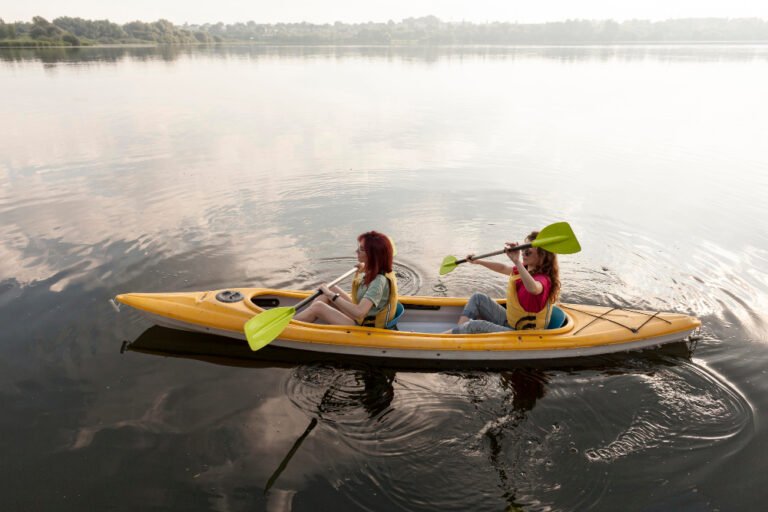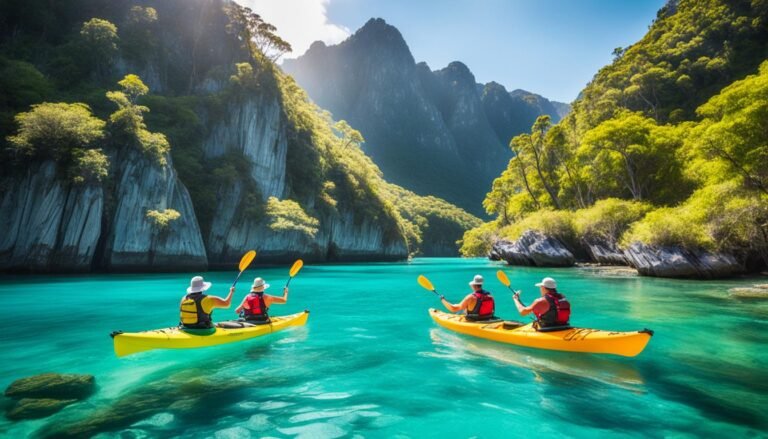Kayaking caters to all, offering excitement for beginners and veterans alike. This guide explores various types of kayaks. From calm flat water models to thrilling whitewater variations and even pedal-drive and tandem styles, each one has its place. It aims to help you find the right kayak for your adventure, providing key insights into their designs and ideal uses.
Grasping the different kayak types is crucial for choosing the best one for you. Sit-on-top kayaks, known for being beginner-friendly, are great for their stability. They’re often favored by anglers, snorkelers, and divers. Recreational kayaks, on the other hand, offer stability and comfort over speed. They’re perfect for leisurely trips on calm waters like lakes or gentle rivers.
Touring kayaks are made for long trips, with features like front and rear bulkheads and decklines for safety. They also have rudders for easier steering. Whitewater boaters might prefer playboats, which are short and nimble. These kayaks, up to eight feet long, excel in freestyle kayaking.
If fishing is your passion, fishing kayaks with sit-on-top or pedal-drive designs are ready for the job. They come equipped with rod holders and mounts for fishfinders. Tandem kayaks are perfect for two, offering efficiency and stability for longer trips with a partner. For the young adventurers, there are specially designed youth kayaks. These feature lighter materials, adjustable parts, and wider hulls to match size and skill.
Key Takeaways
- Sit-on-top kayaks are perfect for beginners because of their stability and ease of use.
- Recreational kayaks are best suited for calm waters and prioritize comfort and stability over speed.
- Touring kayaks are designed for long-distance travel and come with advanced control and safety features.
- Playboats are highly agile and ideal for freestyle kayaking and technical tricks in whitewater.
- Fishing kayaks offer specialized features like rod holders and fishfinder mounts for angling enthusiasts.
- Tandem kayaks provide stability and efficiency for two paddlers, making them suitable for shared adventures.
- Youth kayaks are designed with adjustable features to accommodate children’s sizes and skill levels.
Introduction to Kayaking: Understanding the Basics
Kayaking is a fun water sport that varies from calm lake rides to fast river battles. Knowing about different kayak types and the basics is key. This is true for newbies and those who already kayak.
What is a Kayak?
A kayak is a small boat that you move with a paddle in each hand. It’s different from canoes which have a single-bladed paddle. A kayak has a covered top, allowing for better control and protection from water.
History of Kayaking
The kayak history starts with ancient Arctic peoples who used it for hunting. They made it from wood frames and animal hides. These early kayaks were perfect for sneaking up on animals in cold, windy waters. Today, kayaks are built for fun, tours, and special trips. This makes kayaking something everyone can enjoy.
Kayaking vs. Canoeing: Key Differences
Let’s look at the canoe versus kayak debate to see their differences:
- Deck Design: Kayaks have a closed top, keeping you dry, unlike open canoes.
- Seating Position: Kayakers stay low in the boat, while canoers are higher above the water.
- Paddle Types: Kayaks use paddles with blades on both ends for smooth strokes. Canoes use a paddle with one blade.
Each has its own charm. Knowing these points helps you choose what fits your style better.
Many start by borrowing a kayak from a friend (40%). Others try renting first (35%). A good number also take classes to learn (20%). They look for easy spots to start from, where the water gets deep slowly.
Starting kayaking is quite easy, especially with many kayak types to pick from.
| Kayak Aspect | Statistic |
|---|---|
| Borrowing Kayaks | 40% |
| Renting Kayaks | 35% |
| Signing up for Classes | 20% |
| Gradually Sloping Shorelines | 60% |
Flat Water Kayaks: Suitable for Calm Waters
Choosing the right kayak is important for calm water kayaking. There are many kinds to fit various needs and likes. Let’s check out what works best for you.
Recreational Kayaks
These kayaks are perfect for calm waters. They are super stable and easy to use, great for those starting out. They work well in lakes, slow rivers, and calm seas. Built from tough materials like plastic, they don’t cost much. Plus, they give new paddlers a great start.
Touring Kayaks
Thinking about going long distances? Touring kayaks are your go-to. They’re designed to go fast and smooth. With plenty of space to carry gear, they’re ready for big journeys. Their design helps you steer better and stay in control out in the open water.
Day-Touring Kayaks
Day-touring kayaks are a mix of fun and functional. They offer good stability and can take you far. You’ll have a smooth ride, whether exploring a quiet lake or a calm river.
Sit-on-Top Kayaks
Beginners and fishermen love sit-on-top kayaks for calm waters. With their open tops, getting in and out is easy. They’re really stable and simple to use. Made from strong plastic, they last a long while. They’re perfect for easy paddling days on lakes and gentle rivers.
| Type of Kayak | Best For | Main Features |
|---|---|---|
| Recreational Kayaks | Beginner paddlers, calm lakes | Stability, user-friendliness, affordability |
| Touring Kayaks | Long-distance travel | Sleek shape, speed, gear storage |
| Day-Touring Kayaks | Balanced use | Efficiency, stability, moderate distances |
| Sit-on-Top Kayaks | Beginners, leisure paddlers | Open design, stability, convenience |
Whitewater Kayaks: Thrill-Seeking Adventures
Whitewater kayaking is a thrilling sport. It needs special kayaks to handle the rough rivers. There are three main types: Playboats, Creek Boats, and River Runners. Each is designed for different levels of skill and what you like to do on the water.
Playboats
Playboats are perfect for those who love action. They’re short, usually about 6 feet, and let you do cool moves on waves and holes. If you’re past the beginner stage, these kayaks are great for showing off your skills.
Creek Boats
Creek Boats are made for tricky, narrow drops. They’re longer, about 8 feet, and have more space at the front. This design keeps them from tipping when dropping from waterfalls and gives a smooth ride on wild waters. They’re best for experienced kayakers who love challenges.
River Runners
River Runners are in the middle, offering a bit of everything. They mix the features of Playboats and Creek Boats. This makes them move swiftly in rivers, yet stable. They’re perfect for both beginners and those up for some fun tricks.
- Whitewater kayaking needs special kayaks like playboats and creek boats for the best fun in rough rivers.
- Playboats are around 6 feet and are great for doing stunts. They are very maneuverable.
- Creek Boats have about 8 feet and are awesome for staying steady in tough waters. They don’t tip easily.
- River Runners mix things up for different water types. They are ideal for newbies and those who want to up their game.
Sit-Inside Kayaks: Classic Design and Versatility
The sit-inside kayak is well-known for its traditional shape and the way it wraps around you. It keeps you sheltered from bad weather, making it perfect for all kinds of water adventures. This helps these kayaks stand out in the paddling world.
Advantages of Sit-Inside Kayaks
Sit-inside kayaks excel in keeping you dry and safe from the elements. They are a great option for paddling during tough weather. For example, the Old Town Heron 11XT is comfy and fairly priced, ideal for anyone watching their budget. Jackson Kayak’s Cruise FD focuses on being fast and agile, perfect for quick getaways. The Perception Carolina models offer a cozy ride for those just starting or with some experience.
The enclosed nature of kayaks like the Dagger Axis 12.0 boosts their versatility for all kinds of water. They’re a top choice for various areas, from serene lakes to bustling rivers. Moreover, the Hobie Mirage Revolution 13 finds a great balance between staying steady and being swift, making the paddling experience more enjoyable.
Ideal Activities for Sit-Inside Kayaks
The sit-inside style offers not just comfort but also top-notch efficiency for varied paddling activities. It’s great for both easygoing trips and more adventurous outings. Models like the Pelican ARGO 100X EXO work well in slow waters. Meanwhile, the Wilderness Pungo 105 blends classic and new features for the best kayak ride.
These kayaks also shine in fun or long trips. The Tennessee Kayak Superstore has plenty to choose from, including fame for their touring kayaks. Old Town Loom’s kayaks, for example, are perfect for gliding along on longer tours, highlighting the wide use of sit-inside kayaks.
In wrapping up, the design and function of sit-inside kayaks win over those who love paddling. They’re suited for everyone, whether you’re starting out, looking to fish, or wanting to explore. With models like the Perception Sound 9.5 and Hurricane Prima 110, there’s a kayak specially made for all adventurers.
Fishing Kayaks: Tailored for Angling Enthusiasts
Fishing kayaks are made for a better fishing adventure. They have special designs to meet different angler needs. These kayaks help with fishing by being stable and having space for gear. Let’s look at their key features, the best models, and useful fishing tips.
Features of Fishing Kayaks
Fishing kayaks stand out because of their special features. Here are some important ones:
- Rod Holders: They hold your fishing rods while you move or wait.
- Tackle Storage: These kayaks have spots to keep your bait, lines, and tackle neat.
- Stable Designs: They are built to stay steady when you’re catching fish. This helps keep you balanced.
- Customizable Options: You can add things like fish finders or anchor systems to many fishing kayaks.
Best Fishing Kayak Models
Some top fishing kayak models are known for how well they work and their smart design. Here are a few:
| Model | Weight | Dimensions | Max Weight Capacity | Price |
|---|---|---|---|---|
| Wilderness Systems ATAK 120 | 95 lbs | 12 ft | 400 lbs | $1,799 |
| Pelican Catch Classic 120 | 68 lbs | 11’6″ | 400 lbs | $949 |
| Hobie Mirage Outback | 103 lbs | 12’1″ x 34″ | 425 lbs | $3,449 |
| Old Town Topwater 120 PDL | 116 lbs | 12′ x 36″ | 500 lbs | $2,499 |
| Vanhunks 9′ Whale Runner Single-Seater | 51 lbs | 9′ x 32″ | 330 lbs | $515 |
Tips for Fishing from a Kayak
Here are some crucial tips for fishing from a kayak:
- Check the Weather: Look at the forecast before you go so you’re prepared for the conditions.
- Use a Personal Flotation Device (PFD): Always wear a PFD for safety.
- Pack Light: Keep only the gear you need to prevent the kayak from tipping over.
- Anchor Wisely: An anchor system can keep you in the best fishing spots without drifting.
- Scout Your Location: Learn about where you’re fishing, including good spots and dangers, before you start.
With all this knowledge about fishing kayaks, their features, and fishing tips, you’ll be ready for some great time on the water.
Types of Kayaks: Choosing the Right One for You
When it comes to picking a kayak, there’s a lot to think about. You’ll need to match the kayak with how you plan to use it, the type of water you’ll be on, and your experience level. Consider these key points to help you in choosing the right kayak:
Factors to Consider When Choosing a Kayak
- Material: Kayaks come in different materials. Polyethylene is inexpensive but heavy. ABS is tougher but costs more. For fast and light, go with fiberglass or carbon-fiber, which are pricier.
- Weight Capacity: If you need to carry gear on long trips, a kayak’s weight limit is important.
- Hull Shape: Longer kayaks are better for moving fast and storing things. Shorter ones turn quicker. Deep hulls offer more stability in rough waters.
- Price Range: Make sure the kayak you choose is within your budget. Prices vary a lot. Recreational kayaks cost between $200 and $900, while sea kayaks can be between $800 and $2,500. Fishing kayaks are priced from $400 up to $1,800.
Examples of Popular Kayak Models
Here are some favorite kayaks to help with your kayak selections:
| Type of Kayak | Model | Price Range |
|---|---|---|
| Recreational Kayak | Perception JoyRide | $200 – $900 |
| Touring Kayak | Wilderness Systems Tsunami | $800 – $2,500 |
| Fishing Kayak | Hobie Mirage Pro Angler | $400 – $1,800 |
| Sea Kayak | Current Designs Solara | $1,000 – $3,000 |
| Whitewater Kayak | Dagger Mamba | $700 – $1,500 |
There are many types of kayaks for different adventures. To pick the best one, think about your specific needs, and you’ll find it easier to choose the right kayak.
Inflatable Kayaks: Portability and Convenience
Inflatable kayaks are great for easy paddling, for beginners and pros. They don’t take up much space when deflated. This means you don’t need a big storage area. They are getting more popular because they are stable, comfy, and perform well.
Advantages of Inflatable Kayaks
Inflatable kayaks are super easy to take with you anywhere. You can put them in a car trunk or a small spot. They are comfortable and stable, making paddling fun. Good-quality ones last long and work in any water.
Best Uses for Inflatable Kayaks
These kayaks are best for calm water, fishing, and fun trips. They are perfect for new paddlers who want easy use. Hard kayaks might be better for rough water. This is because they track and stay stable better.
Care and Maintenance Tips
Looking after your inflatable kayak is key for it to last. Here are some tips:
- Make sure it’s inflated right, not too much or too little.
- Rinse it after use to remove salt or dirt.
- Store it cool and dry, not in the sun.
- Check for leaks often and fix them fast.
- Use a cover if you keep it stored for a long time.
By caring for your kayak well, it stays in great shape. This way, it’s always ready for your next adventure. For more tips, check out this kayak maintenance guide.
Tandem Kayaks: Paddling Fun for Two
Tandem kayaks offer a fun way to explore water together. These two-person kayaks are great for couples or friends. They’re known for their stability, which helps both new and experienced paddlers enjoy time on the water.
The Zeppelin Aero 12′6″ is a great tandem kayak. It can hold 600 lbs and has Aero Technology™ for a rigid build. Plus, you can switch it to a solo kayak by taking out an Aero seat.
BOTE, the brand of the Zeppelin Aero, gives a 2-year warranty and a 30-day Aero Guarantee. It aims to make customers feel confident about their purchase. Also, they ship for free on orders over $100 in the U.S.
There are many models for different needs:
- The Aquaglide Chinook 120 Inflatable Kayak is perfect for calm water and loved by families.
- The Advanced Elements AdvancedFrame Convertible Elite Kayak is great for solo or tandem paddling.
- The Point 65 N Tequila! GTX Tandem Kayak tracks well and is easy to carry.
Tandem kayaking is affordable and helps people work together while having fun. You’ll find kayaks for all kinds of water, from smooth to rough. There’s one out there for you, whether you love adventure or just relaxing.
Here’s a look at some popular models:
| Model | Key Features | Ideal For |
|---|---|---|
| Zeppelin Aero 12′6″ | 600 lbs capacity, Aero Technology™, solo/tandem switch | Versatile paddling experiences |
| Aquaglide Chinook 120 | Family-friendly, recreational use | Calm waters |
| Advanced Elements AdvancedFrame Convertible Elite | Tandem and solo paddling flexibility | Versatility for different water activities |
| Point 65 N Tequila! GTX Tandem Modular Kayak | Modularity, straight tracking, easy transport | Convenient travel and storage |
For a fun group activity, tandem kayaks are hard to beat. They make your time on the water enjoyable, full of teamwork, and unforgettable.
Specialized Kayaks: Unique Designs for Specific Needs
Specialized kayaks are great for those who want more from their kayaking. They come with unique features for different needs and likes. This includes clear kayaks, pedal kayaks for fishing, and folding kayaks for easy storage.
Clear Kayaks
Clear kayaks are quite unique. They let you see the world beneath the water as you paddle. Perfect for exploring calm, clear waters with a view like no other.
Pedal-Drive Kayaks
Pedal kayaks are a big hit for people who love to fish. They let you move with pedals, leaving your hands free. This makes fishing or taking photos easier and more fun.
Folding Kayaks
Folding kayaks are for those short on storage space. They fold up and can be easily stored. This is great news for those living in cities or anyone who travels often.
| Kayak Type | Price Range | Key Features |
|---|---|---|
| Clear Kayaks | $1,000 – $2,500 | Transparent, ideal for marine viewing |
| Pedal-Drive Kayaks | $1,200 – $3,000 | Hands-free operation, increased maneuverability |
| Folding Kayaks | $800 – $2,500 | Portable, easy assembly |
These special types of kayaks open up a world of options. From the clear view of a clear kayak to the fishing ease of a pedal kayak, and the convenience of a folding kayak, there’s something for everyone. These kayaks make water adventures more fun and accessible.
Youth Kayaks: Perfect for Young Paddlers
Picking the right youth kayak is crucial for a child’s kayaking development. It ensures both safety and fun. These kayaks are made smaller for kids and come with special features just for them.
Features to Look for in Youth Kayaks
Look for kayaks that fit kids’ size and strength. Focus on things like how much weight it can hold, how steady it is, and if it’s easy to use. Most kayaks for kids fit 100 to 200 pounds and are between 24 to 30 inches wide. This width helps with balance, important for young paddlers.
The Perception Prodigy XS is a great option, being 10 feet long and 23 inches wide. It’s easy to steer and keeps kids safe. For beginners, Lifetime Wave is perfect. It’s stable and easy to get back onto if you fall off. Plus, it’s affordable at $99 USD.
Safety Tips for Kids Kayaking
Making sure kids are safe while kayaking is top priority. Choose a kayak that’s wider than 25 inches for kids under 100 pounds. This means it will be more stable. Also, consider the length of the kayak. For kids, a 6 to 9-foot kayak works best. The Ocean Kayak Banzai is especially good. It’s fast and has a back area easy to get back on from the water.
If you’re looking for a kid’s kayak that’s affordable, try looking for used ones. You can find them easily. Some families love handmade wooden kayaks. They come from places like northwest Pittsburgh, PA. These kayaks are made with great care and are very durable.
| Kayak Model | Dimensions | Weight Capacity | Price | Unique Features |
|---|---|---|---|---|
| Perception Prodigy XS | 10′ x 23″ | 150 lbs | $399 USD | Lightweight, adjustable components |
| Lifetime Wave | 8′ x 24″ | 130 lbs | $99 USD | Highly stable sit-on-top design |
| Ocean Kayak Banzai | 9′ x 28″ | 150 lbs | $349 USD | V displacement hull, swim-in back |
| Vagabond Kwando | 8′ x 27″ | 140 lbs | $275 USD | Best sit-on-top, available at sitontopkayak.com |
Touring and Sea Kayaks: Long-Distance Travel and Exploration
Touring and sea kayaks bring you on amazing adventures. They are great for long trips on the water. These kayaks help you go through different types of water and carry what you need.
Design Features of Touring and Sea Kayaks
Touring kayaks are long and slim, making them fast and agile in water. Sea kayaks are for both open seas and coastal areas. They have strong hulls, space for storage, and help you stay afloat in rough waters.
Kayak users love how reliable touring kayaks are. The Fathom kayak by Eddyline got 4.5 stars in 25 reviews. The Delta 16 by Delta Kayaks scored 4.7 stars, rated by 13 people. Eddyline’s Equinox got an amazing 4.8 stars from 35 reviews.
| Kayak Model | Brand | Rating | Number of Reviews |
|---|---|---|---|
| Fathom | Eddyline Kayaks | 4.5 | 25 |
| Delta 16 | Delta Kayaks | 4.7 | 13 |
| Equinox | Eddyline Kayaks | 4.8 | 35 |
| Edge 14.5 | Riot Kayaks | 4.6 | 38 |
| Tsunami 145 | Wilderness Systems | 4.5 | 103 |
| Castine 140 | Old Town Canoe and Kayak | 4.8 | 8 |
Best Destinations for Touring Kayak Adventures
Set off on a sea kayak and find amazing places to paddle. The Pacific Northwest has calm coasts, while Patagonia is rugged. Enjoy the fjords of Norway or hop islands in the Mediterranean with your touring kayak. These places offer unique experiences for those who love to paddle.
These settings also test kayakers with different water types. This makes each journey memorable and fulfilling.
Conclusion
The world of kayaking has many different options for fun on the water. There are 16 types of kayaks to choose from! These types are divided into groups like sit-in or sit-on-top, hard-shell or inflatable, and for one or two people.
Each kayak type is made for a special activity, from everyday paddling to fishing or surfing. Important things to think about are how stable the kayak is, how it moves, how much you can store, how strong it is, and how comfy it feels. For example, sit-in kayaks keep you dry and steady, while sit-on-top kayaks are easy to get on and are unsinkable. It’s good to know that hard-shell kayaks are top of the line but might cost more and require extra space. On the other hand, inflatable kayaks are budget-friendly and easy to take anywhere.
The right kayak depends on where and how you plan to use it. For beginners, stable kayaks are a good start. For those who want to cover a lot of ground, there are touring kayaks. If you love thrills, look for kayaks made for whitewater adventures. Each type of kayak is meant for a different kind of paddling. Whether you want a relaxing trip on calm waters or to tackle tough currents, you’ll find the perfect kayak. This ensures every time you hit the water, it’s an enjoyable and memorable experience.
